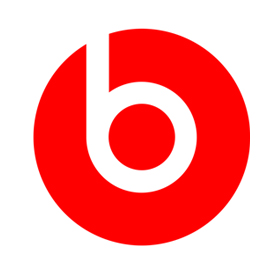Beats Electronics LLC filed a trademark application for the mark “iBeats” almost exactly before Apple Inc.’s (NASDAQ:AAPL) $3 billion purchase of the streaming music company was publicly announced. The filing was made quietly on April 25th, 2014, at a point in time when negotiations must already have been underway between the Cupertino electronics giant and the firm of Andre “Dr. Dre” Young.
The iBeats name has already been in use for several years by Beats Electronics, referring to a set of earbuds first released in 2010. These distinctive looking earbuds, featuring the Beats “b” logo in red on a black background, with red cords and other “color coded” details, were created by Monster and represent the cheapest Beats headphones at an original retail price of $119.95. The earbuds offer good bass but customers often complain about their flimsiness.
 Perhaps because iBeats already existed as a trademark, the second filing for the mark was overlooked when it occurred in April of this year. The “Standard Character Mark” application, Serial Number 86263408, details a completely new and different use for the iBeats name. Rather than simply referring to a pair of earbuds, the “iBeats” trademark in the new application is used for a far-flung suite of services, mostly relating to audio and video streaming.
Perhaps because iBeats already existed as a trademark, the second filing for the mark was overlooked when it occurred in April of this year. The “Standard Character Mark” application, Serial Number 86263408, details a completely new and different use for the iBeats name. Rather than simply referring to a pair of earbuds, the “iBeats” trademark in the new application is used for a far-flung suite of services, mostly relating to audio and video streaming.
iBeats is said to represent “audio and audiovisual broadcasting and transmission of data and of information via electronic communication networks, local and global computer networks and wireless communication networks; streaming of audio and audiovisual content via electronic communication networks, local and global computer networks and wireless communication networks; webcasting services” and a range of related functions as well.
The attorney of record is Michael G. Kelber and the owner is, naturally enough, Beats Electronics LLC. This filing appears quite significant in light of Apple’s (AAPL) subsequent acquisition of the music company. Beats was clearly anticipating the purchase by Apple, and was certain enough of it to rework the iBeats trademark into something with a far broader application.
Even if “iBeats” is not used by Apple for any of its services, it is still a clue as to the direction of thought among the executives involved in hammering out and inking the deal. The iBeats name was clearly held to be of greater value as the trademark for a streaming music and video service than as an item of hardware. This is yet another indicator that Apple may be contemplating the large-scale launch of a Beats-based streaming music subscription service to challenge the primacy of Spotify and outdo the flagging profitability of iTunes.



